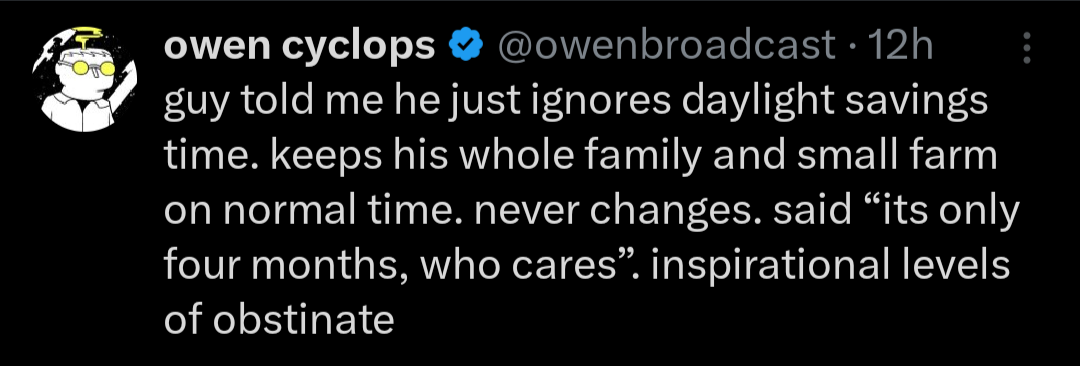this post was submitted on 07 Oct 2024
1136 points (99.4% liked)
People Twitter
5228 readers
904 users here now
People tweeting stuff. We allow tweets from anyone.
RULES:
- Mark NSFW content.
- No doxxing people.
- Must be a tweet or similar
- No bullying or international politcs
- Be excellent to each other.
founded 1 year ago
MODERATORS
you are viewing a single comment's thread
view the rest of the comments
view the rest of the comments

Every appliance in my house (with a clock anyway) and all of our clocks (2 analog, 2 digital) require manual changing. None of them are connected to the internet, which I would think is the only way they would be able to. Do they really make "smart" analog clocks now?
Edit: my car is somewhere in between. It'll "automatically" change, but I have to turn it on/off. It's basically just automated the action of moving the hour forward or back.
Some have some kind of date tracking built in. But it's fairly rare.
I feel like mechanical clocks to account for daylight savings this would be a bit off after one or two leap years; could be doable but a bit complicated to design? Kinda fun to think about
I mean they would be, but that would still be much less clock-changing to do.
Definitely. I'm still going to spend time fascinated by the idea of the gearing and clockwork to make a clock that tracks year/month/day and accounts for leap years.
I'd be more than okay with permanent standard time, myself.
Radio controlled clocks exist. Not everything needs to be connected to the internet.
Ah, I forgot Atomic (radio) clocks existed. My parents used to have one of those over a decade ago, but I always saw them as more of a novelty. Not saying they're not valid, just uncommon IMO.
Yeah it's funny cause I recently made a post regarding my atomic synced watch on !watches@lemmy.ml. They're pretty accurate. Though for my situation, I think I might test syncing outside to see if I can get lower latency.